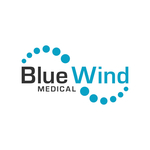New Data Presented at the American Urological Association Annual Meeting Underscores Major Improvement in Quality of Life and Excellent Patient Satisfaction of Innovative Tibial Neuromodulation Treatment
PARK CITY, Utah–(BUSINESS WIRE)–BlueWind Medical, Ltd., a leader in implantable Tibial NeuroModulation (iTNM) and developer of the Revi® System, a patient-centric tibial neuromodulation solution for urgency urinary incontinence (UUI), announced today 24-month Quality of Life (QoL) results from the OASIS pivotal study showing sustained and clinically meaningful improvements. The research was presented at the annual meeting of the American Urological Association (AUA) in Las Vegas.
UUI is commonly associated with decreased quality of life, an important metric that supports comprehensive quality of clinical care for patients.1 The OASIS trial showed that Revi demonstrated consistent QoL benefits throughout 24 months, with clinically significant (≥10-point change) and sustainable improvements in symptom severity in all domains of the Overactive Bladder Questionnaire (OAB-q), including coping, concern, sleep and social, and a total transformed Health-Related QoL (HRQL) score of (87.2%). Symptom severity (transformed score), saw highly impactful improvement with a nearly 40-point reduction, from 70.3 to 32.4, 30.6, and 31.5 at six months, 12 months, and 24 months, respectively,
Additional study highlights:
- As previously reported, primary efficacy and safety endpoints were met with a UUI response rate of 79.4% (≥50% decrease in UUI) and no device- or procedure-related serious adverse events.
- At 24 months, 96.8% reported treatment benefit, 96.7% reported satisfaction, and 100% reported a willingness to continue therapy.
- Importantly, even in participants who did not meet the efficacy endpoint at 24 months (21%), appreciable therapeutic benefit was still noted; in patients with large leaks within this subgroup, 58.8% reported no large leaks in their 24-month voiding diaries. Additionally, 83.3% reported treatment benefit, 66.7% reported satisfaction, and 100.0% reported a willingness to continue Revi therapy.
The OASIS study demonstrates that iTNM with Revi represents a highly effective treatment modality for UUI that results in clinically meaningful and sustainable improvements in both bladder-related and overall health-related QoL. These important QoL improvements were seen within six months of implant activation and were sustained through 24 months.
“OASIS findings presented today continue to underscore the strength of Revi’s efficacy alongside improvements in quality of life for people living with disruptive UUI,” said Roger Dmochowski, M.D., Chief Medical Advisor, BlueWind Medical, who presented the research findings. “UUI can derail active and full lives and is often associated with significant distress. The data presented today builds on an extensive body of evidence supporting Revi as an intervention that restores quality of life for many patients.”
About Urge Urinary Incontinence (UUI) and Quality of Life
UUI, also known as Urgency Urinary Incontinence, is a chronic condition, which means it won’t go away by itself. It can be a disabling condition with physical, psychological, and social consequences that may significantly impact quality of life.1 UUI is associated with a high negative impact on patient’s quality of life, including causing people with symptoms to stay at home, decreasing physical activities and attributing weight gain to an inability to exercise. Women are significantly more likely to report disturbed sleep, decreased self-esteem, decreased sexuality, and feelings of overall declining health related to UUI.2
About the OASIS Study
The OASIS (Overactive Bladder Stimulation System Study) trial is a prospective, multicenter, single-arm, open-label clinical study of 151 adult women (mean age 58.8 years) with UUI (urgency urinary incontinence; overactive bladder-wet syndrome [OAB-wet]). The trial evaluated the efficacy and safety of Revi in treating UUI symptoms in patients with OAB-wet. Primary efficacy and safety endpoints were assessed at six and 12 months, with 97 participants completing the 24-month assessment.
Revi is the first iTNM device for the treatment of UUI labeled for use without prior failure of more conservative therapies, including medication. With concerns3 about the potential link between anticholinergic agents and dementia risk, there is an increased need for flexible, non-pharmacologic treatment options.
For more information on BlueWind Medical and the Revi System, please visit bluewindmedical.com.
About BlueWind Medical Ltd.
BlueWind Medical is transforming the field of neuromodulation therapy through the development of innovative, patient-centric medical technology for the treatment of disease. BlueWind is committed to enhancing the quality of life and overall well-being of patients with an initial focus on those living with urge urinary incontinence (UUI). BlueWind’s Revi® System is the first and only implantable tibial neuromodulation device activated by a battery-operated external wearable to receive FDA clearance for patients with UUI. Revi is the only neuromodulation therapy on the market that allows physicians to use their discretion to determine whether the patient should fail or not tolerate more conservative treatments before using the Revi System rather than mandating “step-therapy.” For additional information about BlueWind Medical, please visit bluewindmedical.com.
References
- Pizzol, D. et. al. Urinary incontinence and quality of life: a systematic review and meta analysis. Aging Clinical and Experimental Research. 2021; 33:25-35. https://doi.org/10.1007/s40520-020-01712-y
- Reynolds, W.S. et. al. The Burden of Overactive Bladder on US Public Health. Current Bladder Dysfunction Reports. 2016; 11(1), 8-13. https://doi.org/10.1007/s11884-016-0344-9
- Coupland, Carol et. al. Anticholinergic Drug Exposure and the Risk of Dementia. JAMA Intern Med. 2019;179(8):1084-1093. doi:10.1001/jamainternmed.2019.0677
Contacts
Media Contact
For BlueWind Medical
Jenna Kane
[email protected]



